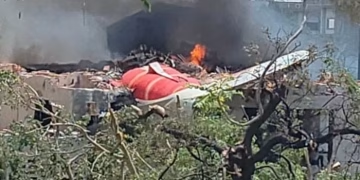The government has passed the budget for next fiscal year with several amendments to appease the IMF and secure the financial assistance package. This is also the last budget for the PDM government which has navigated through a severe a severe economic crisis.
It seems the only solution to raise funds is to impose even more taxes on the already burdened masses. The government has imposed Rs215 bn in additional taxes and reduced Rs85 bn in expenditures. In the absence of a formidable opposition, the budget sailed in parliament with a majority.
Among the changes in revised Finance Bill 2023, the government has raised the revenue collection target to an ambitious Rs9.415 trillion. The price of petrol is also set to rise as the government has increased the development levy by ten rupees to maximum of Rs60 per litre. The repercussions will be clearly left as it will worsen the economic crisis and burden the masses.
The changes in the budget came days after Prime Minister Shehbaz Sharif met the IMF chief on the sidelines of a summit in Paris and urged her to release the funds. It has also known that the prime minister held a third meeting in last-ditch efforts to salvage the deal.
The IMF loan programme agreed in 2019 is expiring within a few days on June 30. Pakistan has been unsuccessful in securing the next tranche of $1.1bn since November. The political crisis caused by the collapse of the PTI government last year and unwillingness of the allied coalition to hold elections further aggravated the situation.
When Finance Minister Ishaq Dar presented the budget on June 9, it was quickly dismissed as being unrealistic for projecting growth rate of 3.5 percent from current 0.6 percent, curtailing inflation at 21 percent from record-high of 38 percent and other revenue-generating measures. Even the allied PPP was not pleased before it was assured additional funds for flood victims.
The decision to hike salaries has been retained as the government risks earning the ire of bureaucrats. As the pension bill surges, the government brought reforms to address anomalies. The laptop scheme has been passed as part of popular measures in an election year. It seems the government has fulfilled its final responsibility and now the people have to face the situation.


























